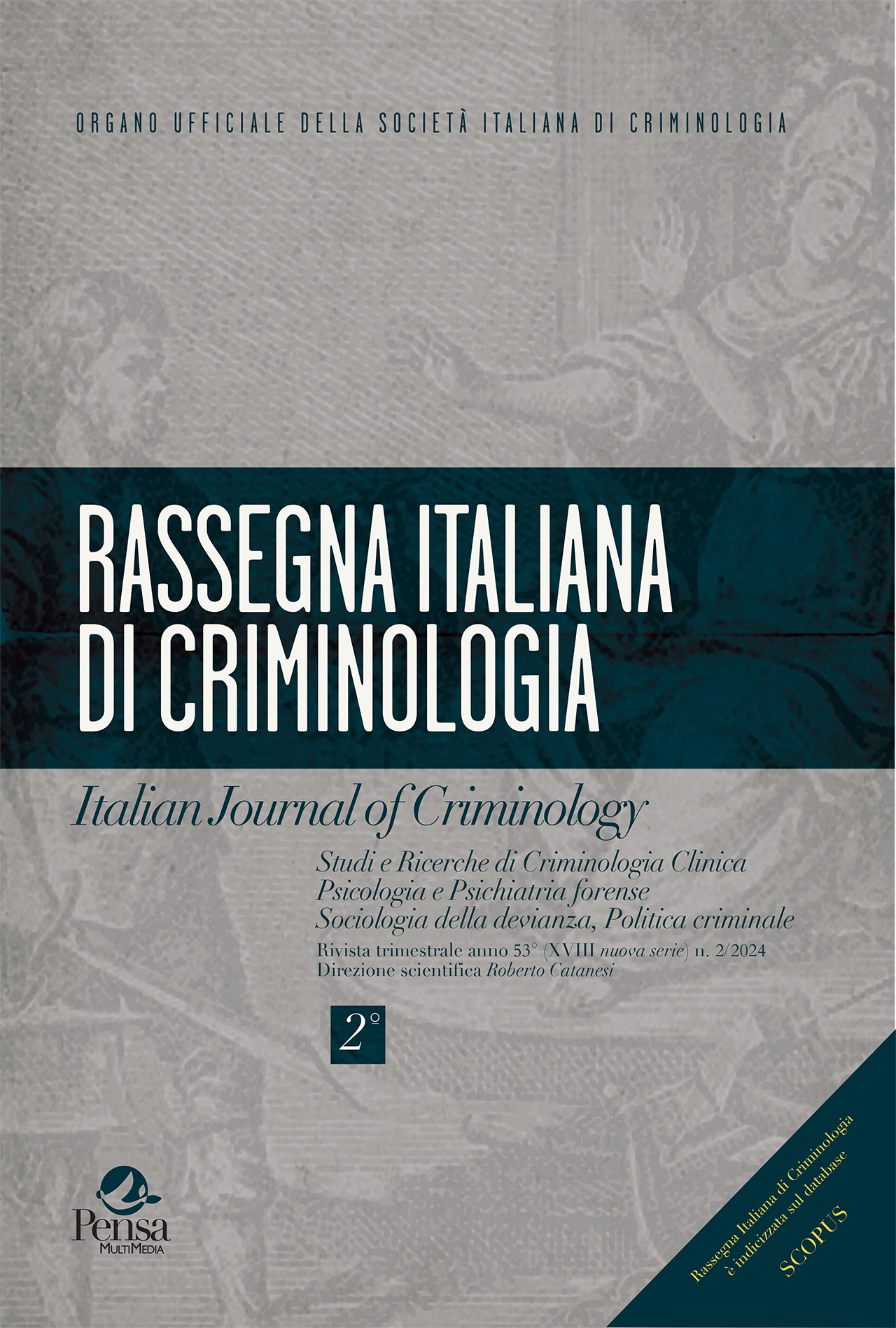Sexual rights behind the bars: juridical observations
DOI:
https://doi.org/10.7347/RIC-022024-p116Abstract
An increasing number of States, inside and outside the European borders, is developing new strategies to ensure sexual rights within the prison system. This change is not occurring in Italy, where the topic still remains a taboo. The purpose of the following analysis is to understand, first of all, whether the term 'right' can be appropriately used to talk about sexual rights and sexual health and, if so, whether it also applies to those who are spending part of their lifetime in jail. This paper provides an analysis of the most relevant case law about this issue, from the Constitutional Court ruling no. 561 of 1987, which first elevated the right to sexuality to the status of an inviolable right, to the Constitutional Court ruling no. 301 of 2012, which sent a clear warning to the Legislature in order to intervene on the issue, concluding with ruling no. 26 of 1999, which clarified that detention does not affect the fundamental rights of which the detainee is (and remains) entitled.
Subsequently, the focus will move to the ‘state of the art’ of the Italian legal system. Special attention will be given to the institution of the 'permesso premio', the only instrument that, right now, addresses, albeit inadequately, the issue of sexuality in Italy. The frame that has been depicted through this analysis will be enriched by the list and descriptions of the law proposals that have attempted, although unsuccessfully, to innovate the current legislation from 1993 to the present.
Downloads
Published
Issue
Section
License
Copyright (c) 2024 Palmina Caruso , Silvia Martino

This work is licensed under a Creative Commons Attribution 4.0 International License.





